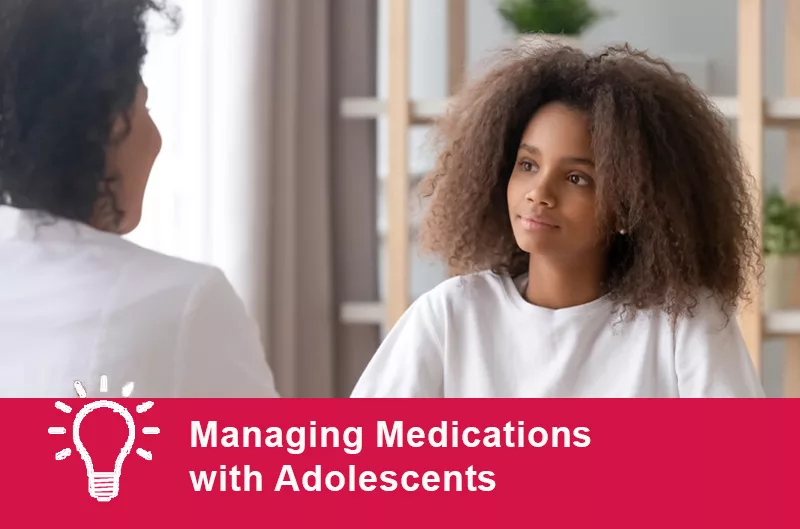Just getting adolescents to even find their medicine or remember to take it is a big challenge, says Jess Shatkin, MD, Professor of Adolescent Psychiatry and Pediatrics at the New York University School of Medicine, and author of “Born to be Wild: Why Teens Take Risks, and How We Can Help Keep Them Safe”. That’s why, in a recent issue of The Carlat Child Psychiatry Report, Dr. Shatkin recommends the following strategies for helping teens manage their meds:
Stimulant and other medication theft is common at college. Recommend that students bring a lock box with a cable on it that they can secure under their bed, where they can keep their wallet and their medicine.
Subscribers can read the full article in The Carlat Child Psychiatry Report.
- Have parents help their teen keep/store the medicine in a consistent place, where it can always be found. As any parent knows, adolescents can be prone to misplacing things that are important. So, you might place the medication by the toothbrush (presuming they always brush their teeth at a reliable time!), or maybe put it out with breakfast.
- Assess whether the adolescent is ready to take medication on their own. If the patient is ready, talk with parents about trying this out and having an unobtrusive way of checking that their teen took the medicine. Sometimes it helps to link taking the medication to privileges, such as using the car or maintaining their cell phone. In the case of ADHD, for example, explain that driving the car can be quite dangerous if kids are not taking their medication, that many more automobile and other accidents happen to people who do not take their ADHD treatment.
- Drug diversion can be a problem, especially with adolescents on stimulants. One potential solution is to prescribe a long-acting formulation, such as Adderall XR as opposed to Adderall Immediate Release—although some teens will still sell it to friends as a study drug (Martinez-RJ, Ferreroset al, Ther Adv Drug Saf 2017;8(3):87-99). Tell your patients, “This is a medicine that some people like to borrow, like to have so they can study, and stay up all night. So, you get this medicine from me only once a month, and I don’t give early refills.”
Stimulant and other medication theft is common at college. Recommend that students bring a lock box with a cable on it that they can secure under their bed, where they can keep their wallet and their medicine.
Subscribers can read the full article in The Carlat Child Psychiatry Report.


_-The-Breakthrough-Antipsychotic-That-Could-Change-Everything.webp?t=1729528747)



